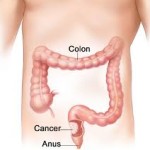 Chromium is a trace mineral that our body requires in order to function optimally. Interestingly, although researchers recognize the importance of the mineral, they aren’t clear on the exact mechanism of action or the amounts that are needed. Chromium occurs in the environment in two different forms – trivalent which is biologically active and hexavalent which is toxic and found in industrial pollution. Hexavalent Chromium was at the center of very famous court cases where companies have lost millions of dollars in compensation to families who suffer from the side effects (cancers, miscarriages and anemias) related to exposure to the chemical. (1)
Chromium is a trace mineral that our body requires in order to function optimally. Interestingly, although researchers recognize the importance of the mineral, they aren’t clear on the exact mechanism of action or the amounts that are needed. Chromium occurs in the environment in two different forms – trivalent which is biologically active and hexavalent which is toxic and found in industrial pollution. Hexavalent Chromium was at the center of very famous court cases where companies have lost millions of dollars in compensation to families who suffer from the side effects (cancers, miscarriages and anemias) related to exposure to the chemical. (1)
Some of the generalized actions known about trivalent chromium include enhancing the action of insulin in the body and significantly impacting carbohydrate, protein and fat metabolism. Doctors do know that there are other actions but have challenges to determine the full range of mechanisms. These challenges include evaluating the chromium content of food, the bioavailability and developing valid measurements which can be used across laboratories and studies so the results can be compared between research studies. (2)
Body builders often use supplementation with Chromium Picolinate which they believe plays a prominent role in the ability of the body to add muscle and regulate blood sugar. Some athletes have used it for weight loss because they feel that it has an effect on suppressing the appetite. However, at this time there is no substantial evidence of any of these claims in clinical research. (3)
Researchers haven’t linked Chromium Picolinate to any side effects when used in the short term but there have been some reports of irregular heartbeats and changes in sleep patterns. Although these side effects are minor, there have been other studies, most notably one from Dartmouth College, that suggested damage to the genetic material in hamster cells. (4) This raises the question of whether or not it would affect the DNA in humans.
In a study done at the University of Alabama in 1999, researchers found that when Chromium was taken with Vitamin C supplements it caused some DNA damage which might increase the risk of cancer. Although there is some degree of appetite suppression, the question of whether or not the risk of taking the supplement is worth the benefit associated with it is up to you. (5)
 Researchers haven’t found any side effects from receiving chromium from the diet but rather from taking supplements made in the laboratory. Specific foods have been identified which have measurable levels of chromium. Broccoli has the most followed closely by grape juice, English muffins and mashed potatoes.
Researchers haven’t found any side effects from receiving chromium from the diet but rather from taking supplements made in the laboratory. Specific foods have been identified which have measurable levels of chromium. Broccoli has the most followed closely by grape juice, English muffins and mashed potatoes.
Chromium absorption is low in the intestinal tract and the remainder is excreted in the stool. For this reason it is highly unlikely that anyone can consume excessively harmful amounts from dietary sources. The amount that reaches the bloodstream is stored in the liver, spleen, soft tissue and bone. Diets that are high in simple sugar, those who have infections, pregnancy, lactating, and are going through any physical trauma may develop a deficiency of chromium.
If you and your physician decide that a supplement is in order it is important to seek the advice of your pharmacist because chromium, when taken on a regular basis, can interact with other prescription or over the counter medications. Medications such as antacids, H2 blockers, corticosteroids, insulin and non-steroidal anti inflammatory medications can react and result in significant side effects when taking chromium.
References:
(1) Occupational Safety and Health Administration: Health Effects of Hexavalent Chromium
http://www.osha.gov/OshDoc/data_General_Facts/hexavalent_chromium.pdf
(2) Linus Pauling Institute Oregon State University: Chromium
http://lpi.oregonstate.edu/infocenter/minerals/chromium/
(3) Office of Dietary Supplements: Chromium
http://ods.od.nih.gov/factsheets/Chromium-HealthProfessional/
(4) Federation Of American Societies for Experimental Biologies: Chromium III Picolinate Produces Chromosome Damage in Chinese Hamster Ovary Cells
http://www.ncbi.nlm.nih.gov/pubmed/8529845
(5) American Chemical Society: Popular Diet Supplement May Be a Cancer Risk
http://www.sciencedaily.com/releases/1999/03/990324062736.htm


Leave a Reply